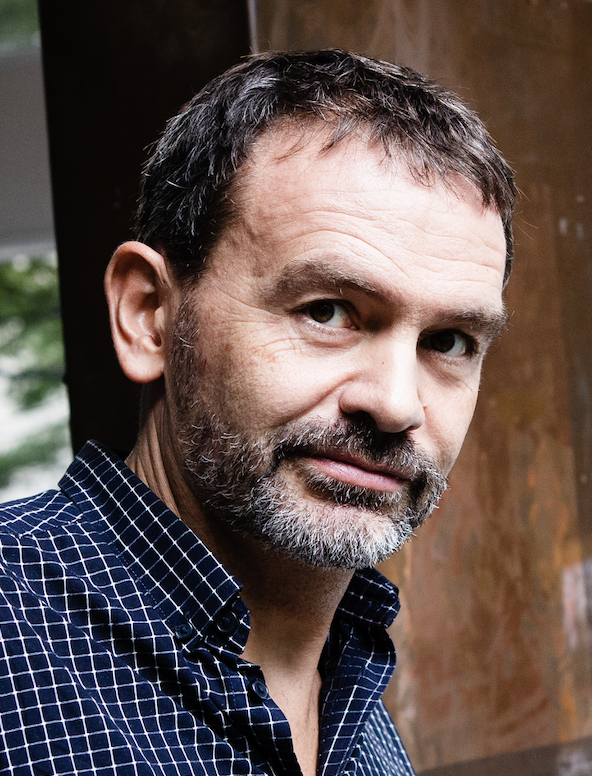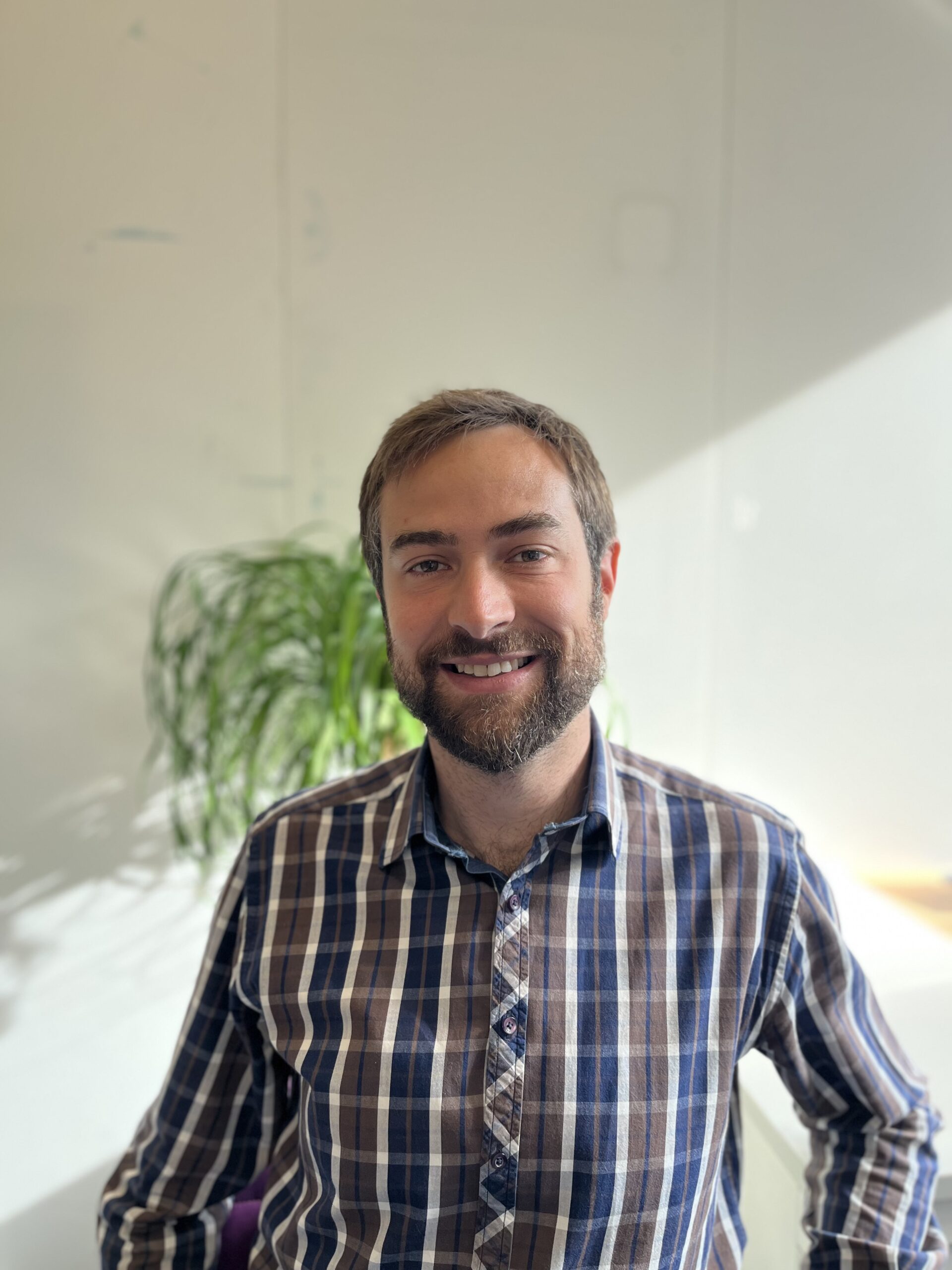Director of research at the CNRS, Raphael founded the “Science and Video Games” chair at the École Polytechnique. He also heads the interdisciplinary SPIRAL center (Science, Publics, Imaginations, Recherches, Arts, tous Liés!) at the Paris Polytechnic Institute. He also founded SciFunGames, whose motto is Science for all, Fun above all, and whose vocation is to put science into the hands of as many people as possible. His first game, Exographer, will be released in 2024. He is also the author of three science fiction novels and a dozen short stories.
-
Angelina DAYTON
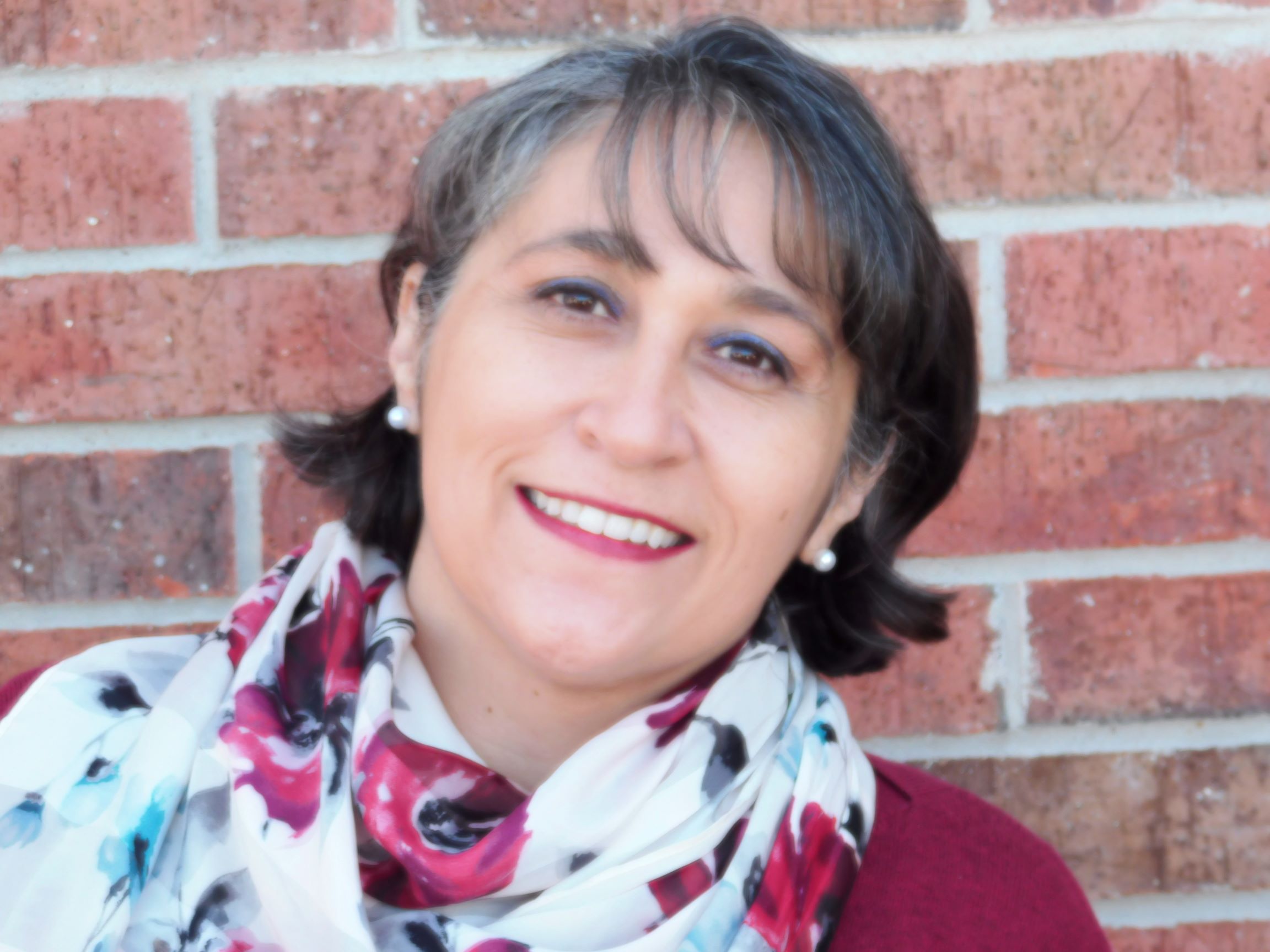
Angelina Dayton is Executive Director of the Virtual World Society and an Aspen Institute Tech Policy Fellow. She was recently named one of the 100 best women of the future. She is a virtual reality researcher, user experience designer, lecturer, consultant and trainer. His specialty is the design and deployment of emerging technologies in complex organizations, with a view to large-scale deployment and mass adoption.
-
Jagrup KAHLON
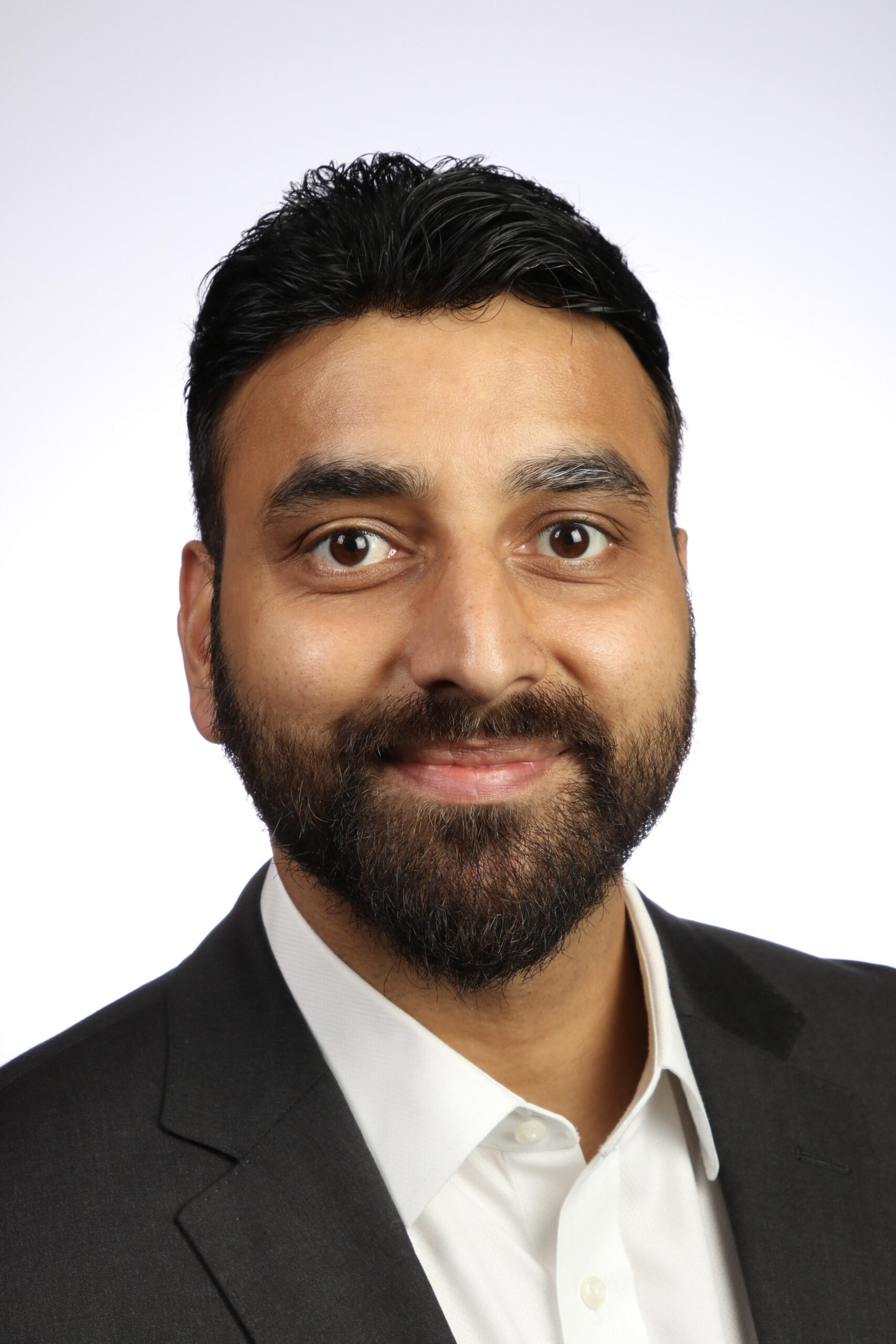
Jagrup (Jay) Kahlon is Vantari VR’s product manager. Vantari enables doctors, nurses and trainees to perform life-saving procedures in a safe, scalable, high-fidelity virtual reality environment. Jay has developed and launched over 45 products in the field of healthcare training and simulation, including hardware, robotics and software.
-
Dominique GEERAERT
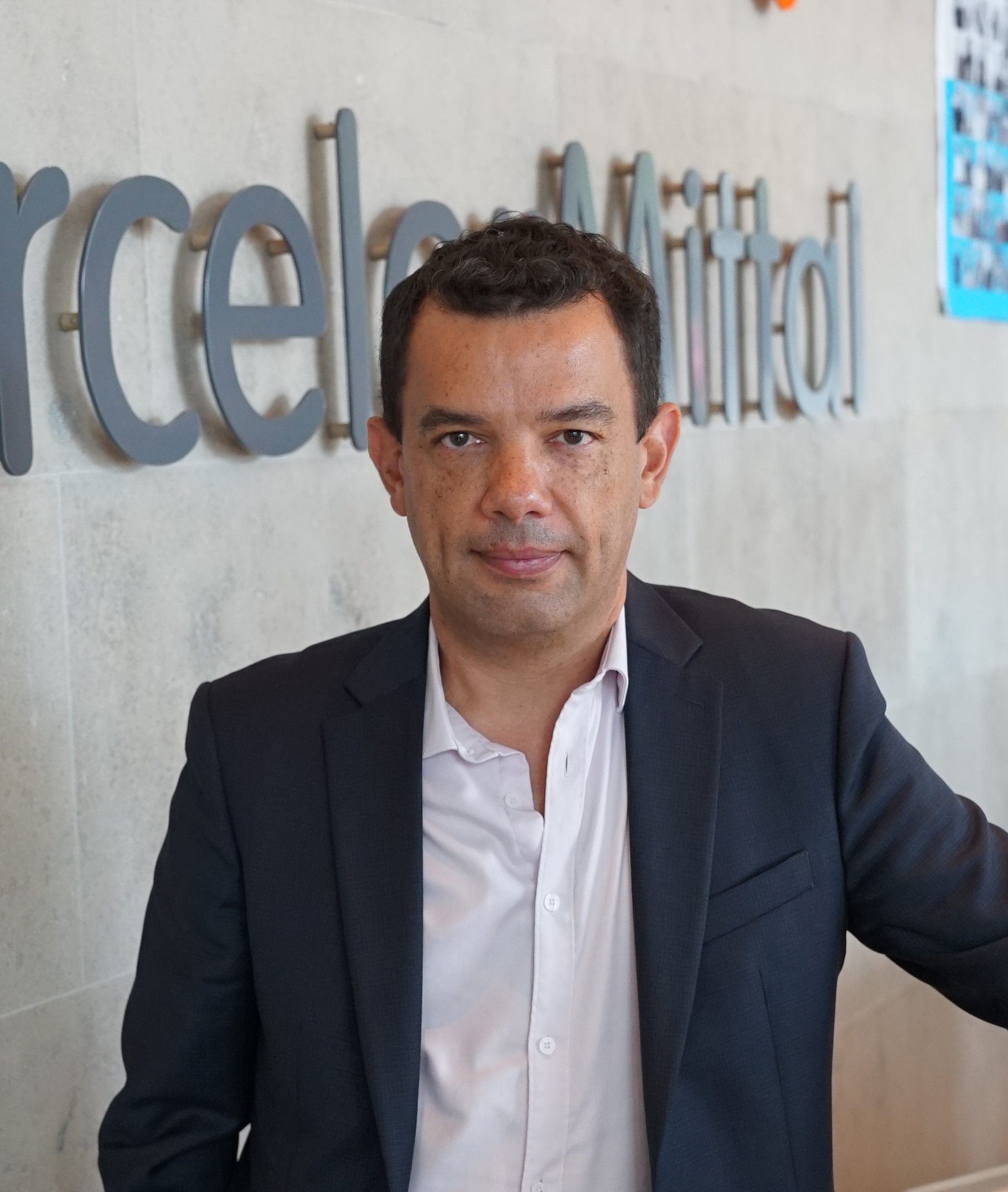
After experience in IT consulting and technology transfer in France and the UK, including the implementation of the first CAVE™ system in an industrial environment in France, Dominique Geeraert has now been supporting the digital transformations of a major industrial Group, ArcelorMittal, for 18 years, on various geographical perimeters in Europe, and more recently in France. He has expertise in managing digital programs, managing solution development teams (particularly in Web, RPA and XR technologies), promoting innovation through the operational implementation of two Digital Labs in France, and leading digital acculturation programs. At the same time, Dominique set up a training organization, DEFI4, which supports the digital and carbon-free transitions of its members and partners, and of which he is currently Chairman.
-
Louis JEANNIN
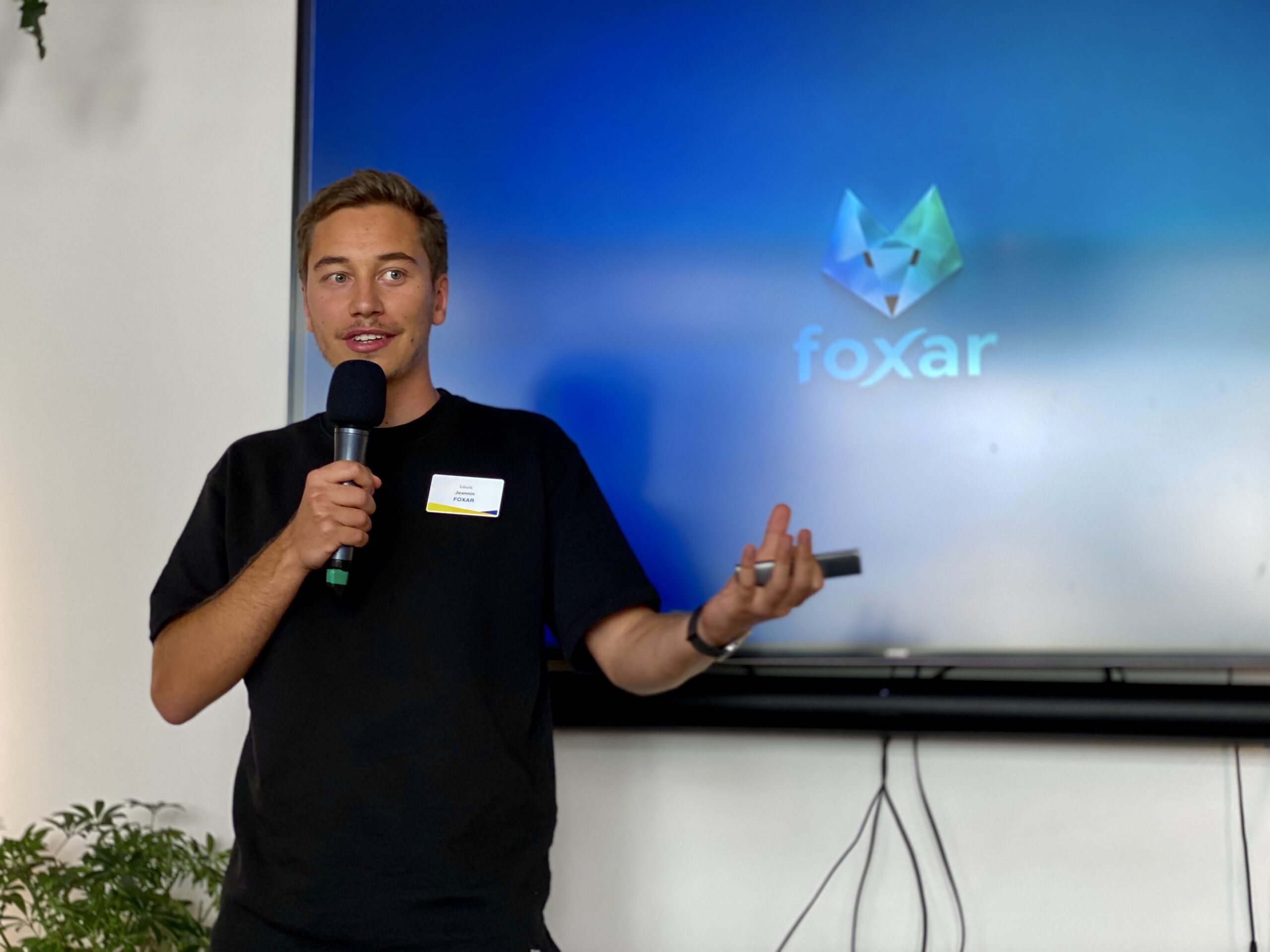
Louis is the co-founder of Foxar, a startup that creates 3D and augmented reality educational content for education and training.
-
Yacine AIT KACI
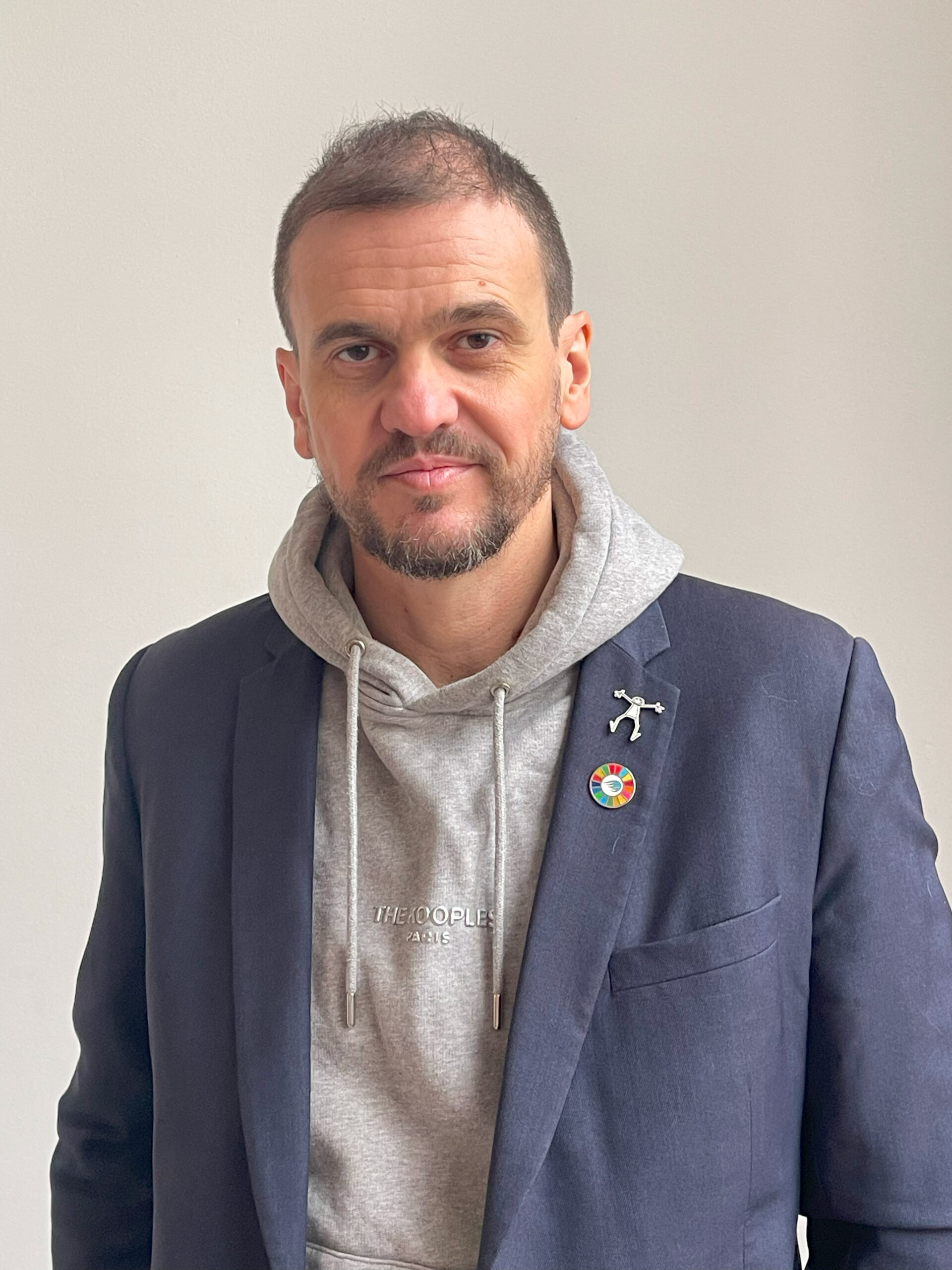
YACINE, A DIGITAL ARTIST, SDG SPECIALIST, AND AMBASSADOR, BOASTS A RICH CAREER SPANNING 25 YEARS AT THE INTERSECTION OF CULTURE AND INNOVATION. Widely regarded as an international pioneer in digital art, he has left an indelible mark on the industry. Notably, Yacine spearheaded the creation of pioneering digital content for esteemed institutions like the Centre Pompidou (1997), Yves-Saint-Laurent (1998), and Le Louvre (1999). In 2000, he co-founded the Art-and-Innovation Collective Electronic Shadow, where they invented and patented Video mapping (2003), earning acclaim such as being the first European to receive the prestigious Ars Electronica (2005) and other notable awards including Laval Virtual (2004 and 2005), and FILE. One of their major installations was showcased at RIO+20 (2012). In 2011, Yacine embarked on a groundbreaking artistic project that transcended the cultural scene, achieving global success with ELYX.
ELYX served as a testament to the impactful fusion of real and virtual life, showcasing the potential of a fictional character to influence real-world issues. ELYX’s universal appeal, characterized by a joyful and non-verbal language, led to its recognition as the first digital ambassador of the United Nations. In 2015, ELYX became a symbol of the Paris Agreement and the Sustainable Development Goals. In addition to his contributions to culture and innovation, Yacine has become a specialist in societal transitions and change management. Co-founding the ELYX Foundation in 2018, his aim is to promote UN instruments and values to organizations, policymakers, and the general public while advocating for culture as a cornerstone of the common good. Recently, Yacine’s remarkable journey was further highlighted by nominations as a GoalKeeper by the Gates Foundation and as a Spatial Guide alongside 20 other metaverse artists worldwide. Beyond his role as a digital arts pioneer, Yacine is a renowned Futurist Advisor and Impact Tech Catalyst. He leads conferences and keynotes, advising companies and organizations on designing their path to 2030 and beyond, with a focus on bringing cultures together through an intellectual and emotional approach. With an optimistic vision for the future, Yacine aims to bridge world cultures and diverse forms of communication, placing a strong emphasis on non-verbal communication at the heart of his approach.
-
Agnès ABASTADO
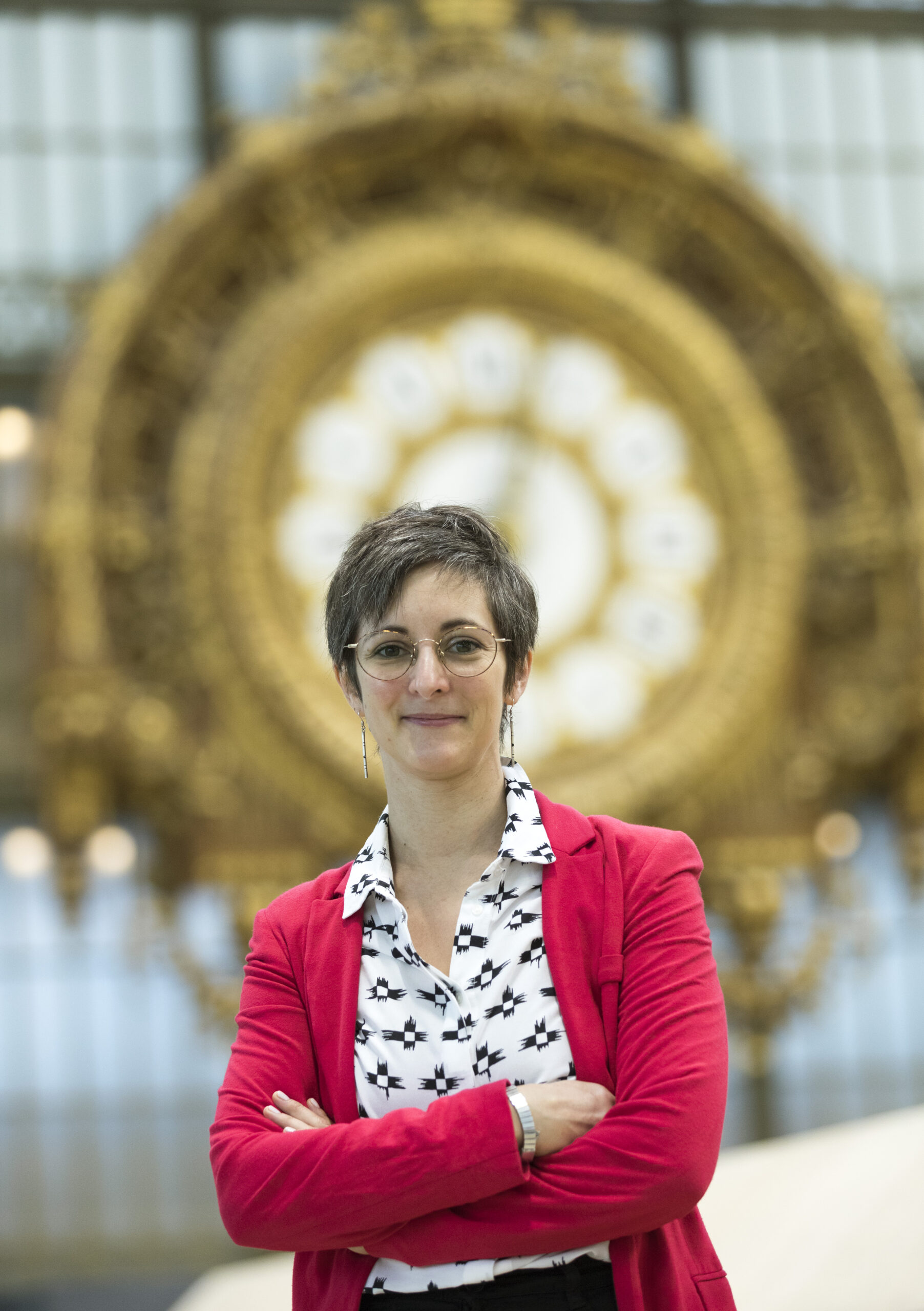
Agnès ABASTADO Head of the Digital Development Department, Deputy director of digital Digital Department Établissement public des Musées d’Orsay et de l’Orangerie – Valéry Giscard d’Estaing Agnès ABASTADO is a graduate engineer from Télécom ParisTech and holds a master’s degree in multimedia creation and production. She has more than 13 years of experience in the design and management of digital projects. She started her career at Publicis Modem France (web agency) in 2008, before joining the Monnaie de Paris (French Mint) in 2012 to manage ticketing, multimedia and digital content projects for the opening of the Quai Conti exhibitions and museum. In 2019, she joins the Digital Africa association as Program, Communication and Marketing Coordinator based in Dakar, Senegal. At the beginning of 2022, she joined the EPMO-VGE – Établissement public des musées d’Orsay et de l’Orangerie, as Deputy director of digital and Head of the Digital Development Department. Agnès ABASTADO contributes, alongside Hélène CHARBONNIER – the Digital Director, to the definition of the digital strategy of the Institution. In collaboration with her teams, she designs, develops and distributes the multimedia and innovative digital offer for the two museums, both in situ and on line, for the permanent collections, the cultural events and exhibitions and the digital mediation for the public. The digital development department is responsible for community management of social networks, websites editorialization, audiovisual productions and co-productions, innovative productions and co-productions (VR, AR, MR, NFT, Metavers, etc.), in situ digital or immersive devices, and transmedia storytelling. Agnès ABASTADO is also the contact person for digital issues in the context of the institution’s CSR policy.
-
Agnès GARAUDEL
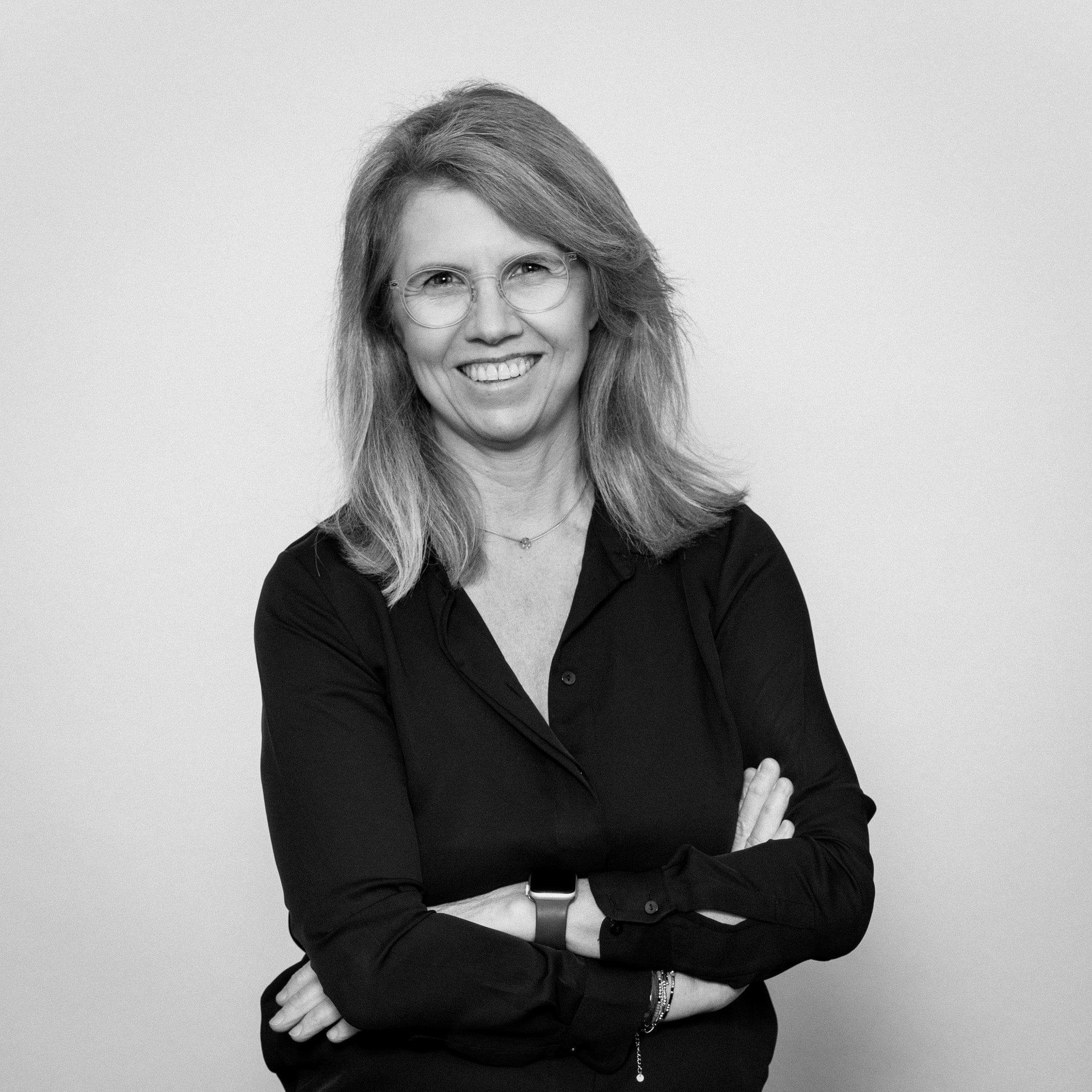
Agnès Garaudel has been developing and directing cultural and audiovisual projects for 35 years, organizing events on an international scale. Agnès Garaudel has been managing GEDEON Experiences since 2019. She also produces immersive creations of various kinds, such as the Pompei exhibition at the Grand Palais in 2020, a 360° show on Japan, and the collective virtual reality experiences Gaudi, the atelier of the divine and Tonight with the Impressionists at the Musée d’Orsay.
-
David MAURANGE
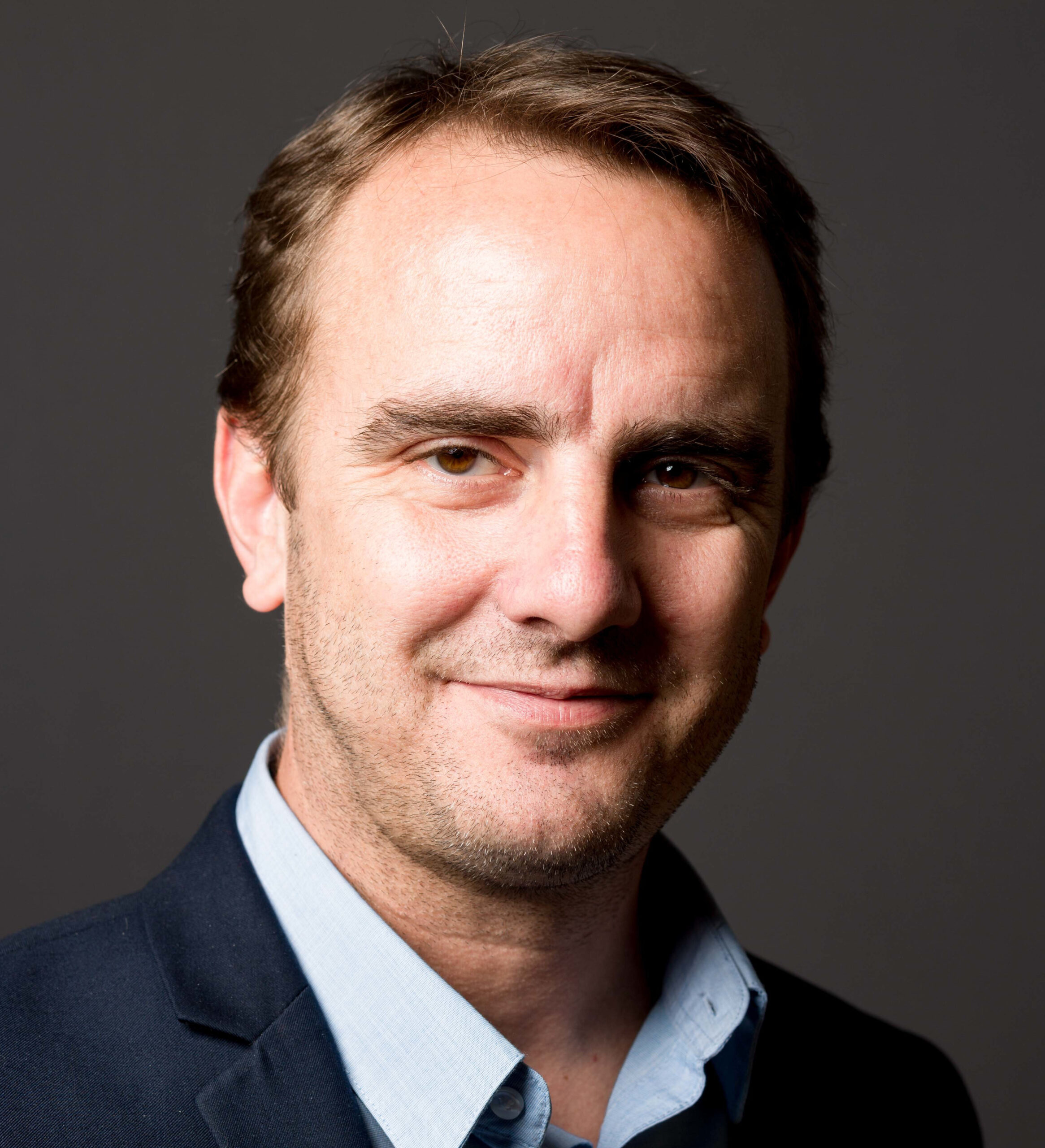
Consulting Director – Digital Expertise Center – Sopra Steria Next Head of Digital Interaction / Metaverse – Sopra Steria Group DTO, With more than 20 years of experience in web and mobile, then x-realities (AR/VR/MR) and the use of 3D models, I am Consulting Director within the Smart Industry tribe of the Digital Expertise Center of Sopra Steria Next. Our work on the Industrial Metaverse concept, which augments digital twins boosted by AI capabilities, simulation, IoT connectivity with the real production environment and collaboration between all businesses, is transforming industry for efficiency, resilience and a sustainable approach. As Head of Digital Interaction / Metaverse for the Sopra Steria group, I’m also in charge of co-leading international experts in these fields. I also speak at several engineering schools (ENSAM, IMT, EPITA…) and business schools (SKEMA, KEDGE, IESEG…) on the uses of new realities (AR/VR) and the Metaverse.

